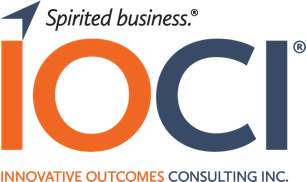The next big workplace shift is coming
The source? Artificial intelligence or AI. Once a behind-the-scenes technology we hardly noticed, AI is transforming the workforce.
Did you know?
- Weather forecasts use complex algorithms to predict hyper-local weather patterns.
- Health monitoring applications, such as the FitBit, use artificial intelligence (AI) to motivate wearers to get healthy.
- Computers write many of the business and sports articles published online.
- Uber is experimenting with self-driving rides for commuters.
- Voice assistants, like Siri, Alexa and Google Assistant are the names of Americans’ new best friends.
- And, of course, Fortune is putting stories of self-driving cars on the cover of its magazine.
This handful of examples make it clear that now’s the time to amplify your knowledge on this critical workplace topic. Here’s why …
Applications for chatbots alone promise endless possibilities, the tech gurus assure us. So it’s perhaps not so surprising that 62 percent of companies anticipated using some form of artificial intelligence by 2018, according to a study by Salary.com, with Gartner predicting that by 2020, AI will eliminate 1.8 million jobs as technology streamlines manual processes, improves workflows and reduces mistakes.
The World Economic Forum’s pronouncement is even more dire. The WEF believes that this fourth industrial revolution will lead to a net loss of more than 5 million jobs in 15 major developed and emerging economies by 2020. These countries include Australia, China, France, Germany, India, Italy, Japan, the UK and the United States.
And that’s exactly why savvy leaders will win the day! They’re already racing to lay the groundwork to leverage AI so they can outcompete those who are not even dialed into what it means.
The key word: Leverage!
“In the past,” Andrew Ng, co-founder of Coursera; Stanford CS adjunct faculty and former head of Baidu AI Group/Google Brain, told Fortune in 2016, “a lot of S&P 500 CEOs wished they had started thinking sooner than they did about their internet strategy. I think five years from now there will be a number of S&P 500 CEOs that will wish they’d started thinking earlier about their AI strategy.”
Even the internet metaphor doesn’t do justice to what AI with deep learning will mean, Fortune reported on Ng’s view. “AI is the new electricity,” he said then. “Just as 100 years ago electricity transformed industry after industry, AI will now do the same.”
And while some traditional jobs will be lost, Gartner also reports that AI will create 2.3 million new jobs as new industries and human skills develop around artificial intelligence.
All this adds up to mean that, in the short run, humans may experience a net loss in traditional roles compared to the new ones that AI creates. But many experts believe that, in the long run, human beings are likely looking at significant growth in opportunities as long as they understand exactly how to pivot. Because while the machine can analyze data and patterns, they cannot reason, experts point out.
“What’s more likely to happen is the work will change. The employee’s role will shift from performing transactional functions to more strategy, planning and goal delivery using AI as an assist or enabler for the employee to perform at a higher level,” says Marialane Schultz, CEO of IOCI.
In other words, leave machine learning to perform those repetitive tasks. Your job is to embrace judgment and decision-making. Currently, workers are spending only 44 percent of their workday on these elements, so there’s plenty of room for improvement.
“The new smart will be determined not by what or how you know but by the quality of your thinking, listening, relating, collaborating and learning. Quantity is replaced by quality,” says Ed Hess, a professor at the University of Virginia’s Darden Graduate School of Business.
And it’s not like AI is a new colleague. The technology has been around since it was born in a Dartmouth College basement in 1956. And it certainly wasn’t a scary platform to Bank of America leaders, who relied on AI data todetermine that they should overlap breaks for their call center workers, and as a result, enjoyed a 23 percent increase in their performance.
So AI is not so scary afterall.
In fact, it’s an exciting technology that savvy leaders can absolutely get their arms around. It’s all a matter of mindset.
IOCI's Schultz believes leaders can benefit from adopting an #AI mindset right now. #futureofwork Share on X
IOCI’s Schultz believes leaders can benefit from adopting an AI mindset and urges them to begin focusing on these specifics:
- Create an intentional AI-focused initiative that assesses how your organization can leverage this rapidly changing technology and position it for competitive advantage.
- Develop stronger strategic abilities to learn how to blend humans, people augmented by intelligent automation and autonomous systems.
- Help your team shift from a transactional focus to leveraging AI processing and analytical capabilities while applying their judgment and ideas to drive business outcomes.
- Polish creative skills – both yours and your teams – to adapt to leading and performing in the era of AI and to be more competitive.
- Rely more than ever on cultivating and managing relationships to influence decision-making – in other words emotional intelligence skills will command an even higher premium in an AI-oriented environment that is characterized by more collaborating and influencing.
- Start thinking about acquiring AI talent now to prepare, especially given the big technology players like Google, Facebook and Uber are already scooping up available talent, which is likely to result in scarce AI resources and an all-out talent war.
As a reward, leaders who see AI as an asset and not an enemy will quickly notice they have more flexible time in their day to pursue a good work-life balance, too. Healthy mental habits can make this next revolution a true step forward for careers everywhere.
Leading in the Era of AI
The task of organizational leadership will change as artificial intelligence (AI) disrupts traditional leadership principles, approaches and organizational mindsets on how workers and managers approach the work and deliver what their clients want.
The future of business management is already here. Learn what organizational leaders must know to thrive.
To learn more, IOCI has released a white paper, Leading in the Era of AI, that helps to answer the important question, how should leaders and employees prepare for success in an AI augmented organization? Take advantage of this free download of this critical leadership white paper today!


